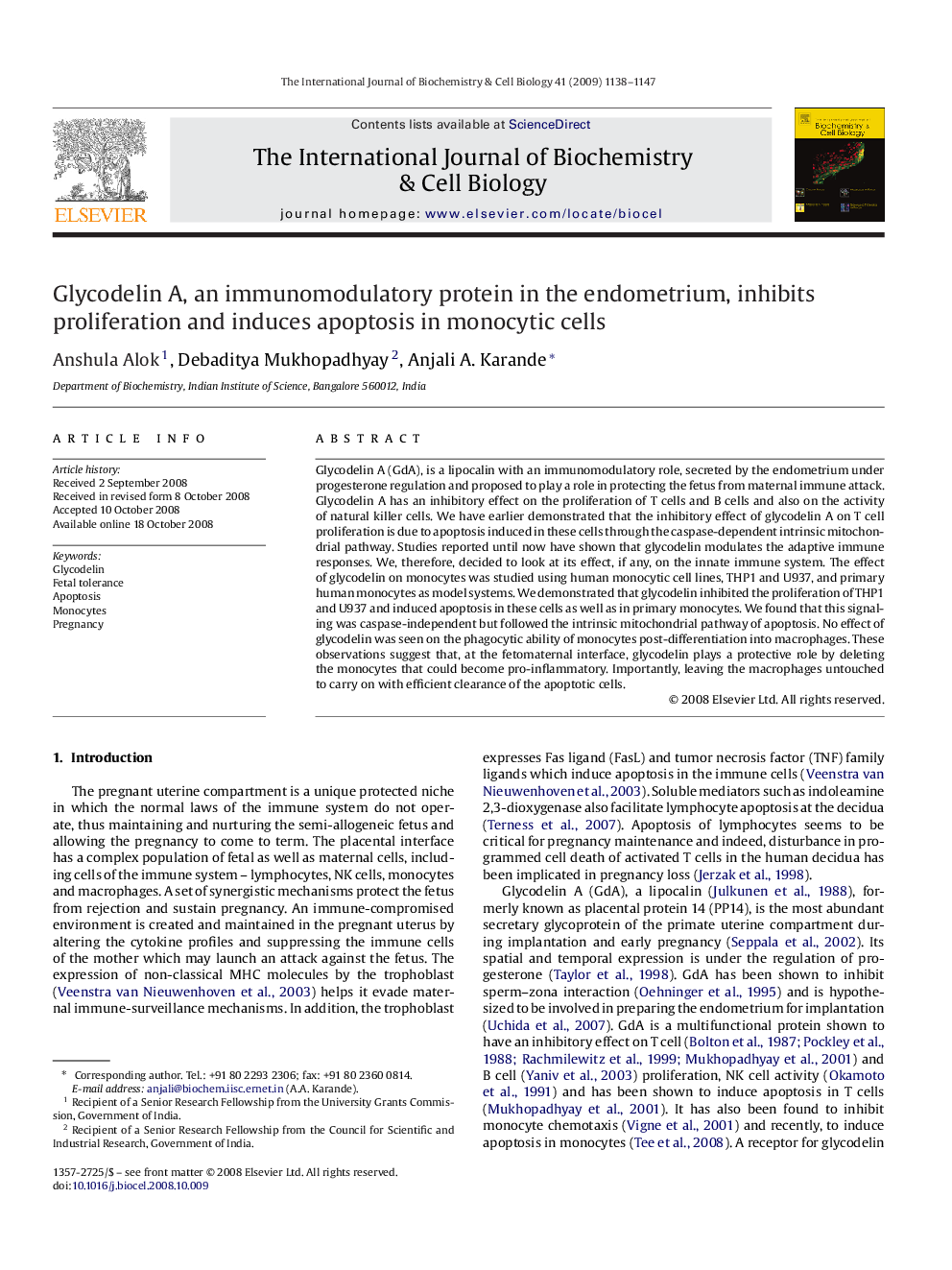| Article ID | Journal | Published Year | Pages | File Type |
|---|---|---|---|---|
| 1985100 | The International Journal of Biochemistry & Cell Biology | 2009 | 10 Pages |
Glycodelin A (GdA), is a lipocalin with an immunomodulatory role, secreted by the endometrium under progesterone regulation and proposed to play a role in protecting the fetus from maternal immune attack. Glycodelin A has an inhibitory effect on the proliferation of T cells and B cells and also on the activity of natural killer cells. We have earlier demonstrated that the inhibitory effect of glycodelin A on T cell proliferation is due to apoptosis induced in these cells through the caspase-dependent intrinsic mitochondrial pathway. Studies reported until now have shown that glycodelin modulates the adaptive immune responses. We, therefore, decided to look at its effect, if any, on the innate immune system. The effect of glycodelin on monocytes was studied using human monocytic cell lines, THP1 and U937, and primary human monocytes as model systems. We demonstrated that glycodelin inhibited the proliferation of THP1 and U937 and induced apoptosis in these cells as well as in primary monocytes. We found that this signaling was caspase-independent but followed the intrinsic mitochondrial pathway of apoptosis. No effect of glycodelin was seen on the phagocytic ability of monocytes post-differentiation into macrophages. These observations suggest that, at the fetomaternal interface, glycodelin plays a protective role by deleting the monocytes that could become pro-inflammatory. Importantly, leaving the macrophages untouched to carry on with efficient clearance of the apoptotic cells.
